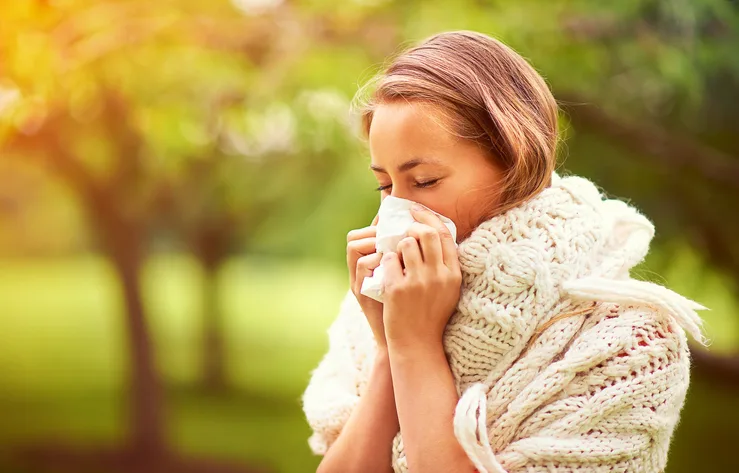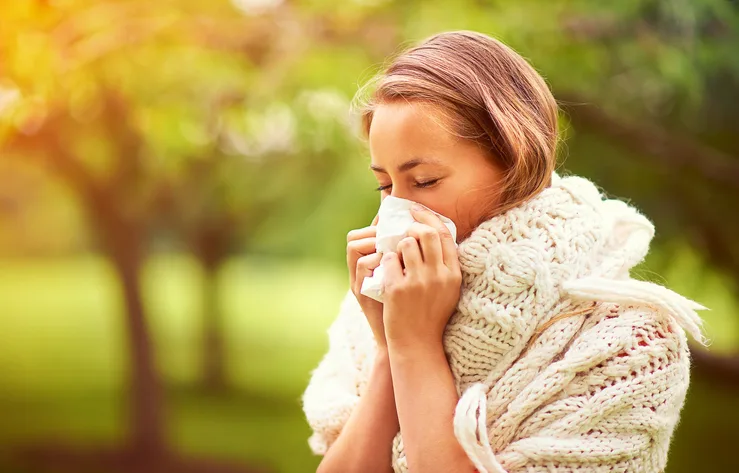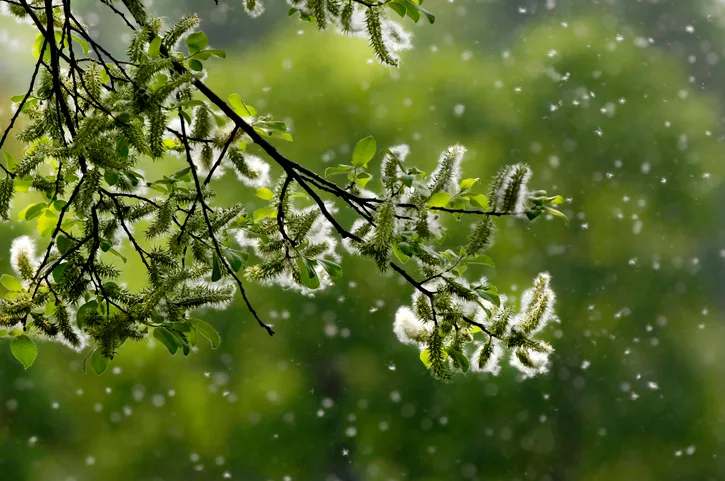
Is it allergies or a cold? How to tell, and how to treat it
They can both be an ordeal, but there are real differences between the two.

You might see it in waves: Either when temperatures gradually climb in the spring, and again in the fall when they begin to tumble and true winter cold creeps in.
Whenever it will happen, it's inevitable: You'll see family and coworkers battling the sniffles -- and you may not be far behind.
Often when these bouts with seasonal colds arrive, they'll coincide at least partly with allergy season -- tree pollen in the spring, ragweed in the fall. Even worse, research indicates that pollen counts are rising year on year due to climate change, with allergenic plants blooming longer in extended warm weather.
But though they may seem to share some symptoms, colds are not the same as allergies, and they can’t be treated the same way.
Dr. Greg Rex, an assistant professor in the Division of Allergy at Dalhousie University, says the biggest difference is the cause. Allergies are caused by a body's immune response to "what should be an innocuous protein" in the environment, such as pollen or dust mites. Colds, by contrast, are typically viral infections.
And while not every Canadian will develop an environmental allergy in their lifetime, almost everyone will eventually catch a cold.
Of the symptoms that colds and allergies do share, the starkest are respiratory, such as itchy noses, sneezing, coughing and others.
"It may seem gross but the best way to tell the difference is to look at the colour of the nasal discharge. Allergies usually produce clear nasal secretions. A cold infection usually comes with a yellow-colored nasal discharge,” says Jason Tetro, microbiologist and researcher at jasontetro.com.

Besides the runny nose, you will likely be congested, but if it's an allergic reaction, there are symptoms you WON’T share with your cold-suffering colleagues.
"Colds also have coughs and sore throats while allergies will usually lead to itchy, watery eyes," Tetro says.
If it IS an allergic reaction, Rex says sufferers are in a better position for treatment than those who've caught a cold. The savvy allergy sufferer may already have pre-medicated before their season arrives, and when it does, multiple treatment options such as intranasal sprays and antihistamines are readily available.
But if it’s a cold rather than allergies, there’s little to be done aside from over-the-counter symptom relief such as cough syrup and anti-inflammatory medication while waiting for the infection to run its course.
"I understand chicken soup works very well, but not much else," Rex says. "There's some medicines that will help manage symptoms, but time works better than anything else."
Even in the long run, allergy sufferers seem to have better options. Those fed up with their annual bout can see an allergist to treat the underlying causes, typically with shots and, for some allergies, sub-lingual tablets. But in the long run, there is no immunity to the "common" cold.
"There are many viruses that can cause a cold," Rex says. "Also, the viruses that do cause it they tend to mutate over time."
With files from Joanne Richard.
